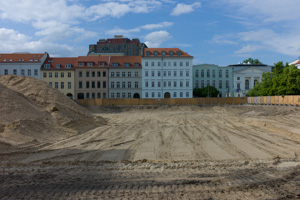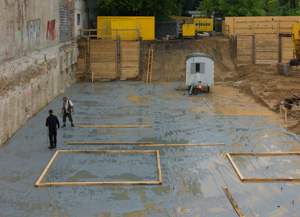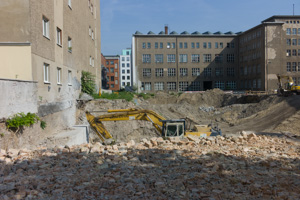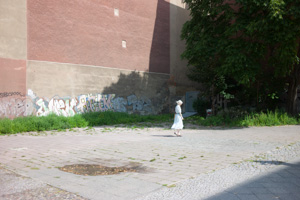Do we need a land reform?
- Written by: Matthew Griffin |
- Created: Tuesday, 27 November 2012 15:25
We posed this question on Bkult in November 2012. Bkult is an online discussion platform run by the Bundesstiftung Baukultur, Germany's national foundation for the built environment.
 A study of 25 German cities
during the last five years by the Deutsches Institut für Wirtschaft (DIW) revealed the following:
A study of 25 German cities
during the last five years by the Deutsches Institut für Wirtschaft (DIW) revealed the following:
- on average the rents in German cities have gone up by 1.8% per year
- in the more attractive metropolises the rent has increased by 5% to 10% per year
- the cost of buying an apartment has risen by 6.5% on average, and in Munich by 12%
This trend continues steadily, and many experts have begun to warn of the next real estate bubble. Spain and the USA are still struggling to recover four years after the last bubble burst.
 Free market mechanisms begin to fail when resources become so scarce that societies'
basic needs cannot be met. Land is our primary resource, we depend on it for food
and shelter. The speculative market that has developed around property is not
sustainable, because it sacrifices long term social stability for short term
economic gain.
Free market mechanisms begin to fail when resources become so scarce that societies'
basic needs cannot be met. Land is our primary resource, we depend on it for food
and shelter. The speculative market that has developed around property is not
sustainable, because it sacrifices long term social stability for short term
economic gain.
None-the-less, property ownership is an effective urban development tool. Ownership motivates people and companies to invest in their environment by providing them with the long term security that tenants lack. People tend to be more careful with the things that they own than with things they rent. In the face of shrinking state pensions, property ownership can form the basis of a stable and secure retirement. Unfortunately this form of pension is too expensive for many people.
 It is time to rethink our principles of land ownership. By insulating
the use of land from the speculative property market, we could encourage
sustainable urban development. One possibility is a land reform that would
transform ownership rights into long term leaseholds. This would give the
government control over our primary resource, and remove the pressure for
short term monetization of land assets. It would allow government to allocate
spatial resources to meet on society's broader needs in ways that are
currently not possible.
It is time to rethink our principles of land ownership. By insulating
the use of land from the speculative property market, we could encourage
sustainable urban development. One possibility is a land reform that would
transform ownership rights into long term leaseholds. This would give the
government control over our primary resource, and remove the pressure for
short term monetization of land assets. It would allow government to allocate
spatial resources to meet on society's broader needs in ways that are
currently not possible.
In Amsterdam for example, the city owns 80% of the land. The property rights are leased out to private companies to build buildings that meet the city's requirements. Because the city maintains ownership, they can make sure the land is used in society's best interest, and not simply those of a handful of private developers and land owners.
 The current global crisis was in part triggered by a land speculation,
to prevent further such crises, we would do well to reconsider our land
ownership systems. Several countries have begun to change their land
ownership laws. A plebiscite in Switzerland (zweitwohnungsinitiative)
has forced the government to limit sales of houses to non residents,
and slow the urbanization of their limited mountain landscape.
In the U.K. the Liberal Democrats have proposed a similar law for
certain boroughs of London. In Germany it is therefore time
to ask “Do we need land reform?”
The current global crisis was in part triggered by a land speculation,
to prevent further such crises, we would do well to reconsider our land
ownership systems. Several countries have begun to change their land
ownership laws. A plebiscite in Switzerland (zweitwohnungsinitiative)
has forced the government to limit sales of houses to non residents,
and slow the urbanization of their limited mountain landscape.
In the U.K. the Liberal Democrats have proposed a similar law for
certain boroughs of London. In Germany it is therefore time
to ask “Do we need land reform?”
Follow and contribute to the debate on Bkult (in German).